Source: CCTV.com
01-12-2007 16:30
Child labor is a long established part of life in Pakistan. There are millions of children who work to support their families and as a result miss out on their education.
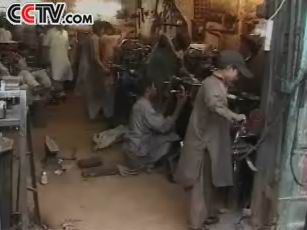 |
These children are exploited, working long hours for little pay. Their working conditions are harsh and don't provide much in the way of stimulation for their physical or mental development.
In today's Working Asia, Geo TV Pakistan's Shaukat Khattak looks at lives of children in the brick-making industry.
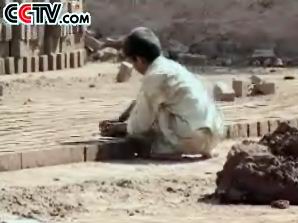 |
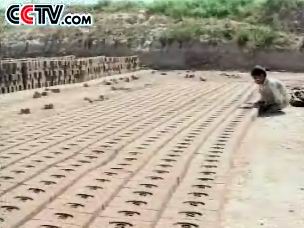 |
Like his family members, nine years old Kamran is making bricks in a brick-kiln in Frontier metropolis, Peshawar. They work from dawn to dusk and earn three US dollars a day for making 1000 bricks. Kamran will only see half of their earnings as the other half is deducted for loans his father has taken out.
Kamran's father Jamshid Khan was a born brick-maker. He has borrowed money from the owner of the brick-kiln to meet extra expenses that resulted from family members being sick, getting married or dying. Since Jamshid's salary is insufficient for the ten members of his family to live on, he has no option but to continually borrow money to meet his daily expenses. This has resulted in his entire family being caught in a web of bonded labour...and there doesn't seem to be an end in sight.
Kamran, like any child wants to play games and go to school. But his father can't afford to have less hands on board. He fears without Kamran's help he would not be able to produce as many bricks.
Kamran's father Jamshid Khan said "I wish to send my son to school but could not afford it. It is better that he works with me to earn bread for the family. "
Kamran said "It is a hard labour but I have to do it. We are poor people and could not pay for education to earn a good job. There is no option other than making bricks with my father. "
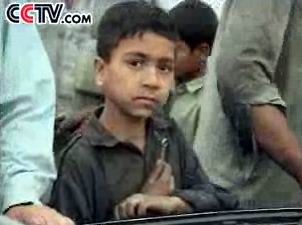 |
Inflation, unemployment, and low wages have pushed million of Pakistani children into jobs, rather than school. Official figures show that there are about three million children working however, the actual figure is much higher.
Brick kilns are not the only places where children work. Two thirds of the children work in agriculture, about 10 percent work in the industrial sector while the rest work in informal trades, like restaurants and mechanical shops.
Five years ago, Pakistan adopted the International Labor Organization's Convention 182 which called for the elimination of the worse kind of child labor ... child prostitution. But millions of children still work in this area.
Dozens of non-governmental organizations are working to curb child labor. The ILO is also fighting against child labor in Pakistan's north western province.
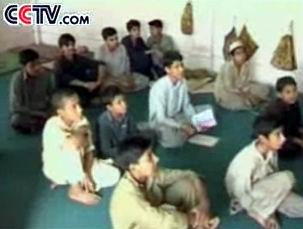 |
Besides, a massive awareness campaign, the ILO has initiated projects to give children working in mechanical shops and brick kilns training and an informal education.
In addition to these efforts, the government and the community need to do their part to combat child labor.
If government's don't eliminate child labor, they will end up with more unskilled workers...perpetuating the poverty cycle.
Kamran's uncle Rambel Khan said "I am a slave. My son is a slave and his children will remain slaves. "
Mongolia likewise has a large number of children who are obliged to support themselves or their families. Conditions are so hard that they are often forced to scavenge for a living. Tomorrow it is their story we will tell, in "Is it the time for the lark to fly?"
Editor:Du Xiaodan
